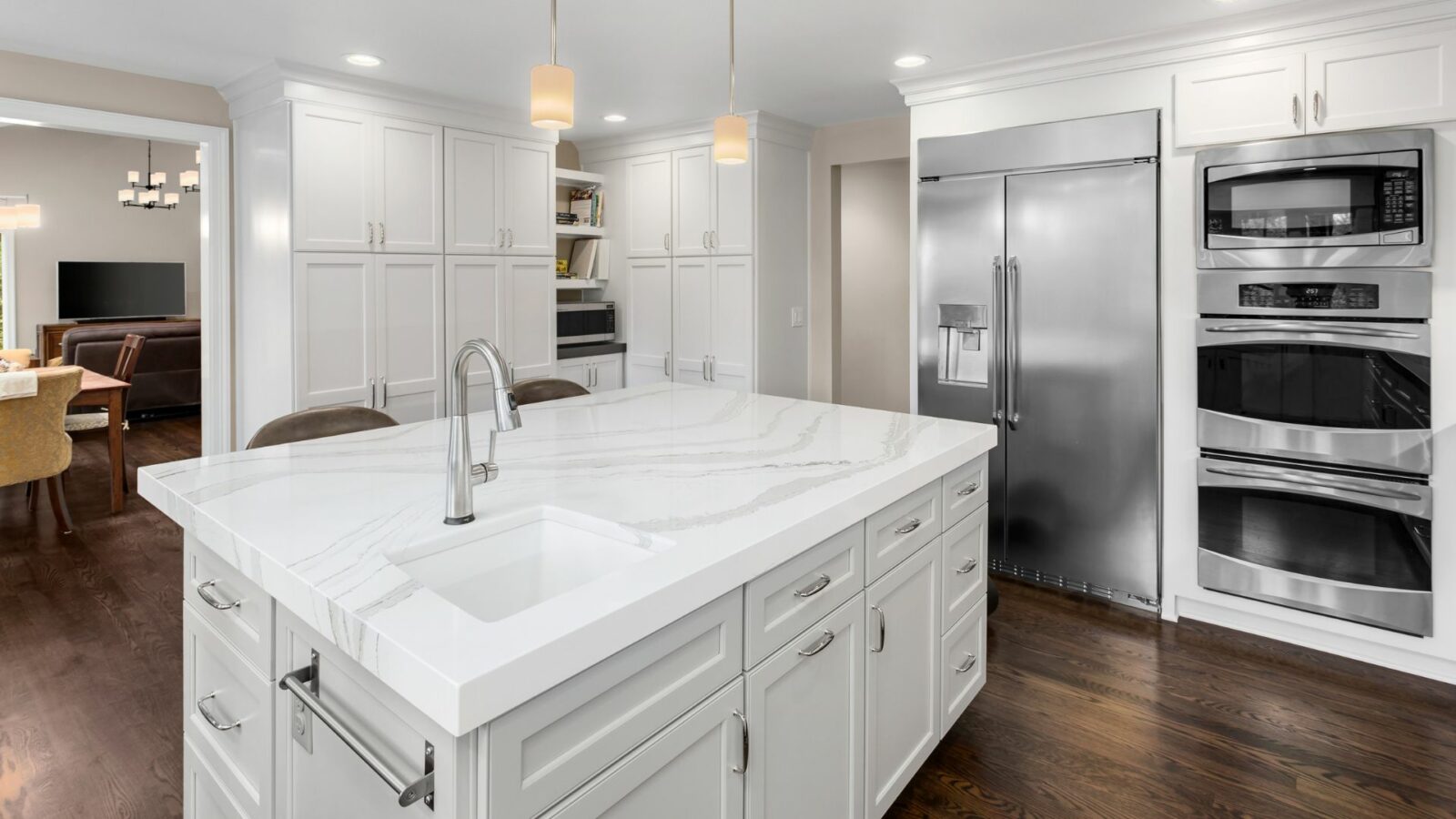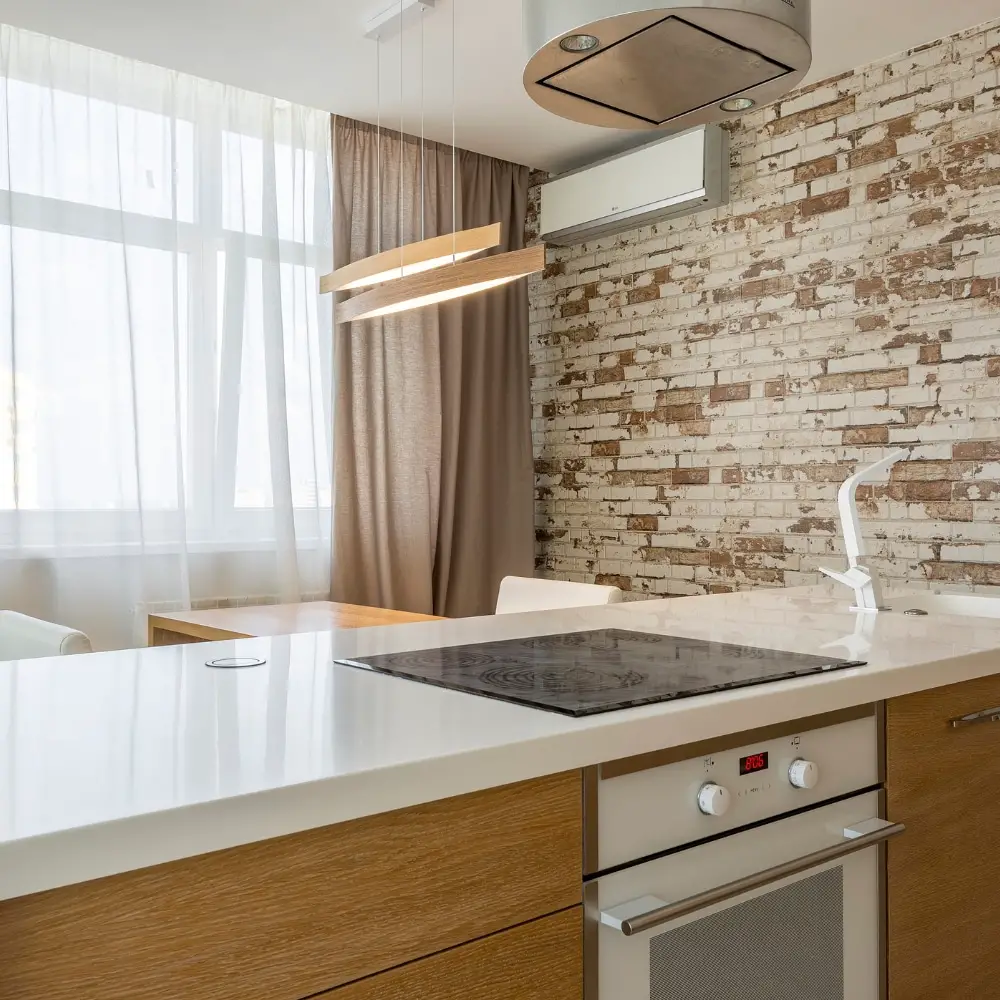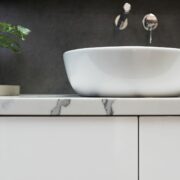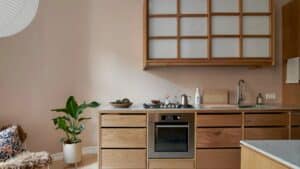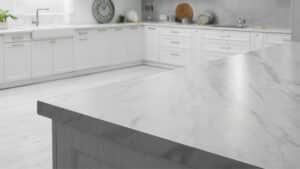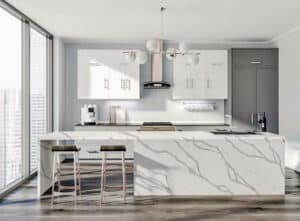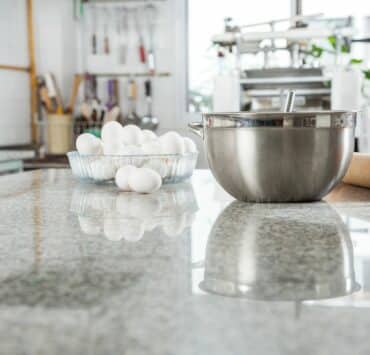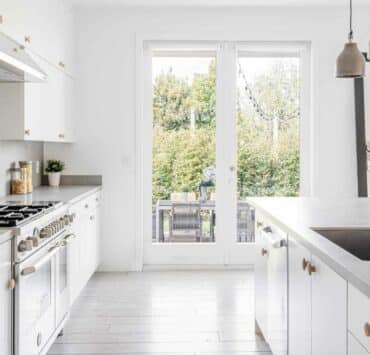Porcelain countertops have evolved significantly since their inception. Originally used primarily in commercial settings, they have become a stylish and practical choice for modern residential kitchens.
When it comes to remodeling kitchens, porcelain countertops really shine because they’re tough and look great. This smart choice mixes practicality with beauty, making it a favorite for people wanting to make their kitchen look better. Its strength and ability to fit in with any style make it a great deal for homeowners.

Why Choose Porcelain?
- Durability: Porcelain countertops are known for their exceptional strength, resisting scratches, heat, and UV light.
- Variety: Available in numerous colors and patterns, they mimic natural stone, wood, and even concrete.
- Maintenance: These surfaces require minimal upkeep, needing only a quick wipe to keep them looking pristine.
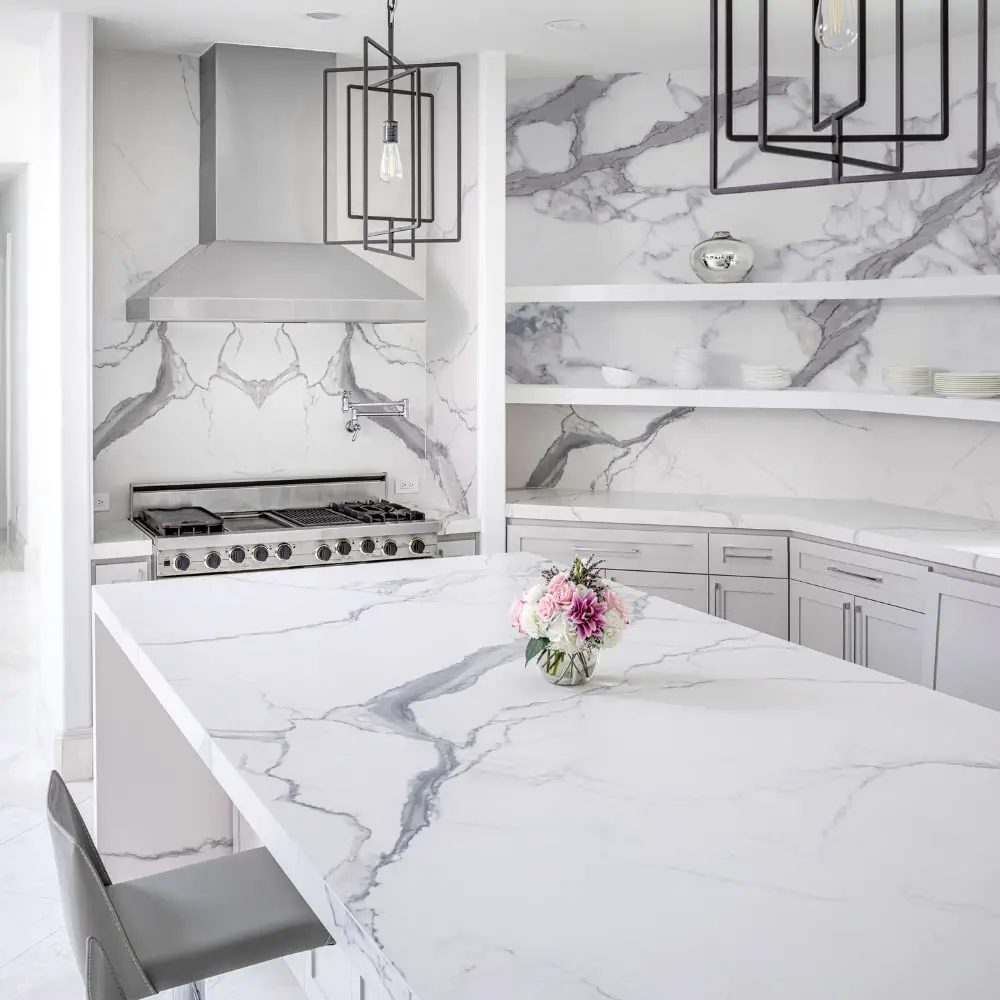
A Closer Look at Porcelain Countertops
Porcelain is crafted from clay and fired at high temperatures, resulting in a dense and non-porous surface. This process makes it less prone to staining and bacterial growth, an essential feature for kitchen surfaces. Moreover, its ability to withstand extreme temperatures allows for hot pots and pans to be placed directly on the surface without fear of damage.
Porcelain Countertops Cost
Porcelain countertops typically cost between $50 to $120 per square foot, including installation, or about $1,500 to $3,600 in total for an average kitchen. The price for just the porcelain slab materials ranges from $20 to $60 per square foot, depending on factors like color, style, and thickness.
Comparing Porcelain with Other Materials
- Granite: While granite has been a popular choice, porcelain offers a more uniform appearance and easier maintenance.
- Quartz: Porcelain outshines quartz in terms of heat resistance and UV stability, making it suitable for outdoor kitchens as well.
- Durability: In comparison to granite, porcelain doesn’t require annual sealing, offering a hassle-free solution.
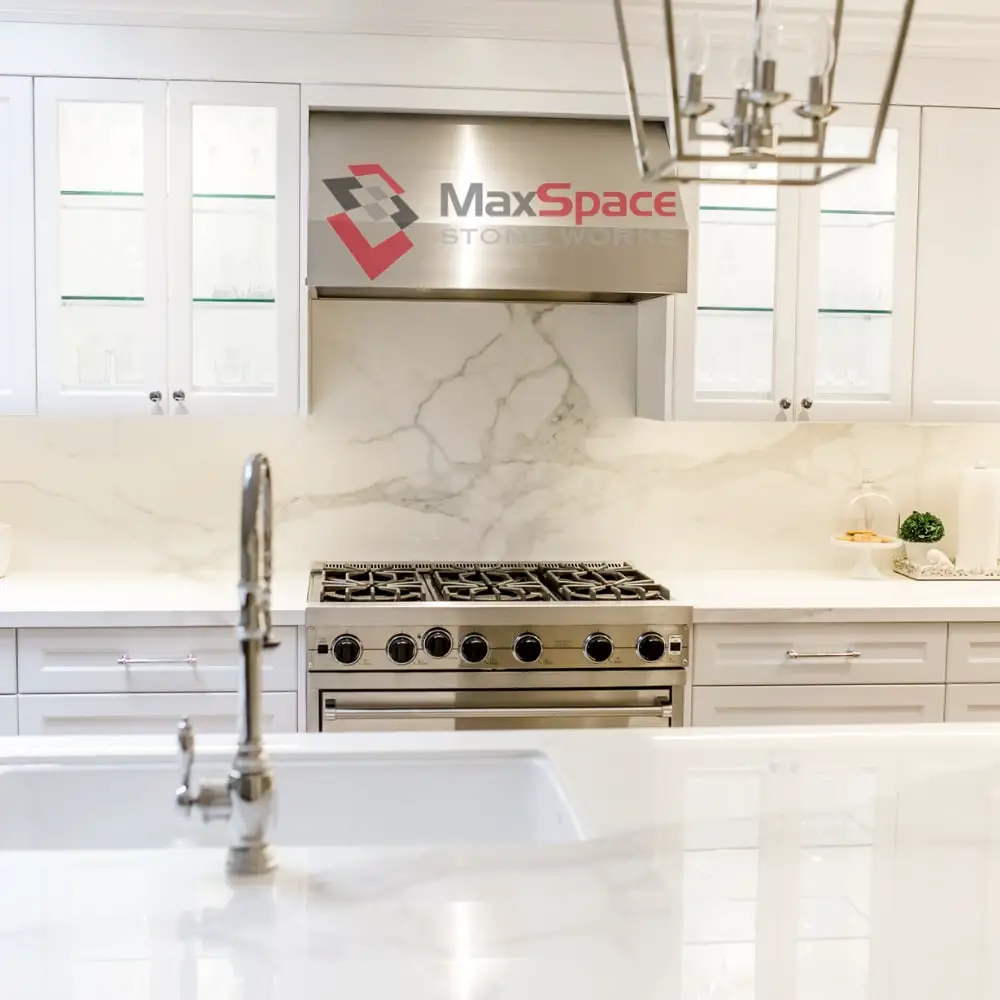
Pros and Cons of Porcelain Countertops
Pros
- Durability: Porcelain is extremely hard and resistant to scratches, chips, and cracks. It stands up well to the demands of a busy kitchen.
- Heat Resistance: These countertops can withstand high temperatures without damage, so you can place hot pans directly on them without worry.
- Low Maintenance: Porcelain is non-porous, which means it resists staining and doesn’t require sealing like natural stone countertops.
- Design Flexibility: With a wide range of colors, patterns, and finishes, porcelain can mimic the look of granite, marble, wood, and more, fitting any kitchen style.
- UV Resistance: Porcelain doesn’t fade in sunlight, making it an excellent choice for kitchens with lots of natural light or for outdoor kitchens.
Cons
- Cost: While offering numerous benefits, porcelain countertops can be more expensive than some other options, especially for premium designs and finishes.
- Installation Challenges: Due to their hardness and weight, porcelain slabs can be difficult to install, requiring professional installation which adds to the overall cost.
- Limited Reparability: If a porcelain countertop does get damaged, it can be harder to repair than some other materials, often necessitating professional assistance or even replacement of the entire section.
Maintenance and Care of Porcelain Countertops
Porcelain countertops are known for their durability and low maintenance, but keeping them in pristine condition requires some basic care. Here’s how to maintain and care for your porcelain countertops to ensure they continue to look their best:
Routine Cleaning
Porcelain countertops are non-porous, which means they resist stains and bacterial growth. To keep them clean, simply use a mild dish soap or a pH-balanced cleaner with warm water and a soft cloth or sponge. Avoid abrasive pads or harsh chemicals, as these can scratch the surface or diminish its sheen.
Tip: Wipe up spills as soon as they occur, especially with acidic substances like citrus juices or vinegar, to prevent any potential discoloration.
Avoiding Harsh Chemicals
Though porcelain is highly resistant to stains and scratches, it’s important to avoid using strong acids, bleach, or heavy-duty cleaners. These can erode the surface over time and potentially affect the appearance of your countertop.
Recommended Products: Use non-abrasive cleaners and avoid products that contain bleach or ammonia.
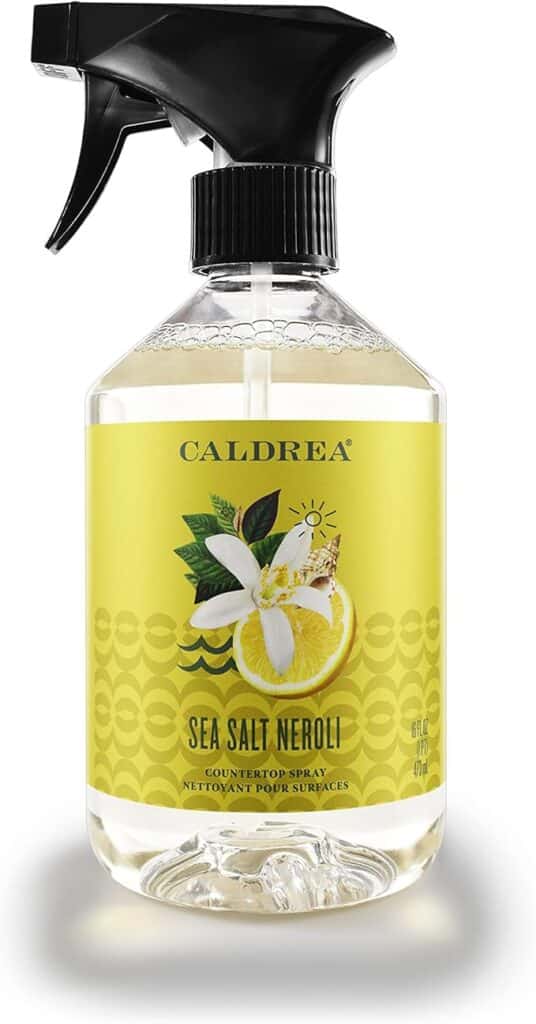
Dealing with Tough Stains
For stubborn stains, a paste made from baking soda and water can be effective. Apply the paste to the stain, let it sit for a few minutes, then gently scrub with a soft brush or cloth before rinsing thoroughly.
Tip: Test any stain removal method on a small, inconspicuous area first to ensure it does not affect the finish of the countertop.
Heat and Scratch Resistance
Porcelain countertops are highly resistant to heat and scratches, but it’s still advisable to use trivets or hot pads for very hot pots and pans. Although porcelain can handle hot items better than many other materials, sudden extreme temperature changes can still cause issues.
Preventive Measure: Use cutting boards to avoid scratches from knives and other sharp objects.
General Tips for Longevity
- Regular Wiping: Daily or weekly wiping with a damp cloth can keep your countertops looking fresh.
- Avoid Heavy Impact: While porcelain is durable, try to avoid dropping heavy objects on the surface to prevent any potential damage.
- Periodic Inspection: Check for any signs of damage or loose edges periodically and address any issues promptly to maintain the countertop’s integrity.
By following these simple maintenance steps, your porcelain countertops will continue to offer both beauty and functionality for years to come.
FAQs
Is porcelain a good option for countertops?
Yes, it’s highly durable, resistant to heat, scratches, and UV light, making it an excellent choice.
What are the disadvantages of a porcelain countertop?
Porcelain can be more expensive than some materials and requires professional installation.
Is porcelain cheaper than granite?
The cost varies, but porcelain often falls in a similar or slightly higher price range than granite.
Is porcelain countertop better than quartz?
Porcelain offers superior heat and UV resistance, making it a strong contender against quartz.
Which is better, porcelain or granite?
Porcelain offers easier maintenance and a more uniform appearance, appealing to many homeowners.

How long will porcelain countertops last?
With proper care, porcelain countertops can last for decades, maintaining their beauty and functionality.
Can you use porcelain for kitchen countertops?
Absolutely, porcelain’s durability and aesthetic versatility make it ideal for kitchen countertops.
Can you put porcelain countertops in a kitchen?
Yes, they are an excellent option for kitchens due to their durability and low maintenance.
Will porcelain countertops stain?
Porcelain’s non-porous nature means it’s highly resistant to staining.
Kitchen Remodeling with Porcelain Countertops
Incorporating porcelain into your kitchen remodeling project can elevate the room’s overall aesthetic while ensuring long-lasting durability. Whether you’re aiming for a modern, sleek look or a more traditional ambiance, porcelain provides the flexibility to achieve your desired design.
